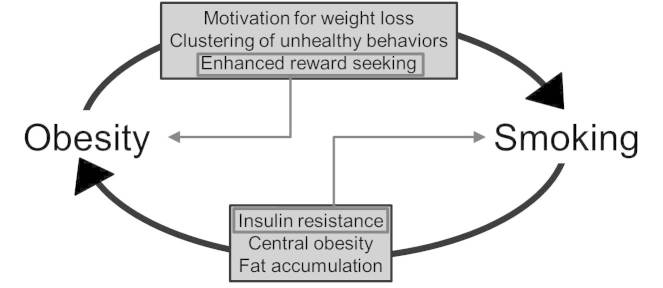Figure 1.

A simplistic model of the relationship between obesity and smoking. Obesity may lead to increased rates of smoking, mediated by several factors: a clustering of unhealthy behaviors, such as consumption of densely caloric foods; motivation for weight loss; or enhanced reward seeking. Smoking causes insulin resistance, central obesity, and fat accumulation, which could contribute to the development of obesity among smokers. These factors may create a cycle promoting smoking in the obese population. The proposed cycle is enhanced by two specific interrelated factors, enclosed in grey boxes. Increased reward seeking may lead to further excess weight gain by enhancing food-seeking behaviors, exacerbating obesity. Insulin resistance, which can be caused by chronic smoke exposure, is thought to augment nicotine reinforcement, which may lead to increased smoking behavior. For clarity, the well-characterized relationships among obesity, clustering of unhealthy behaviors, and insulin resistance have been omitted from the figure.
